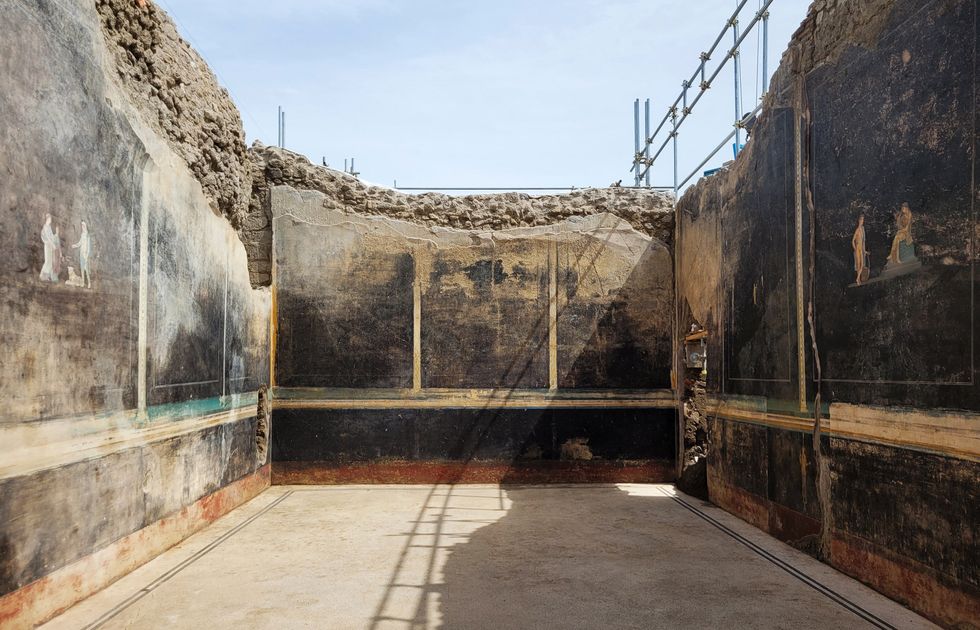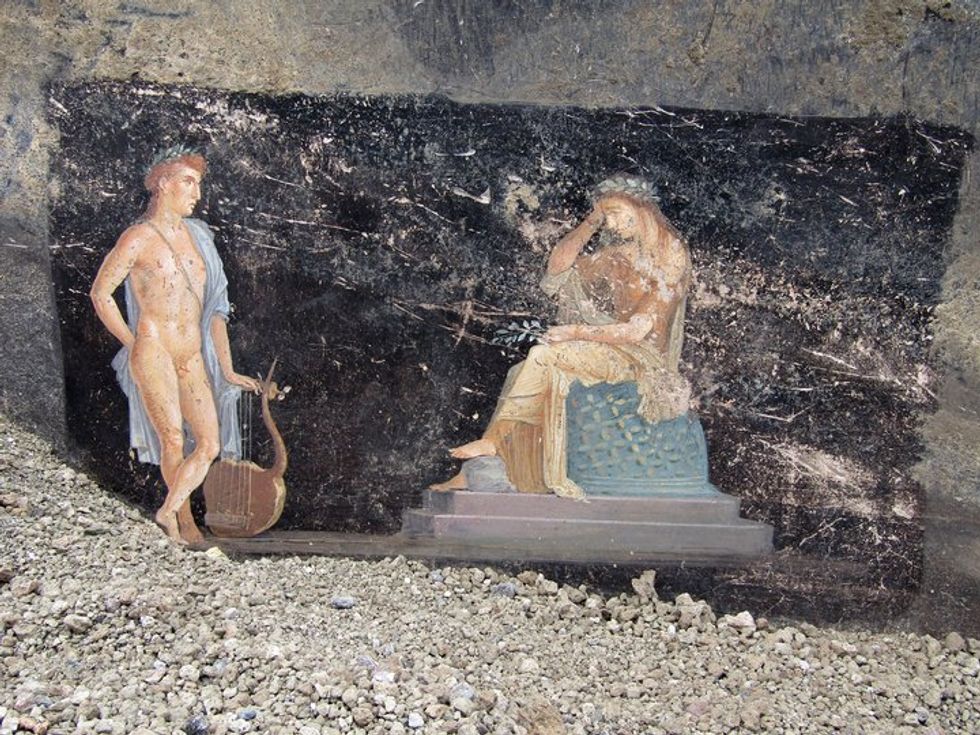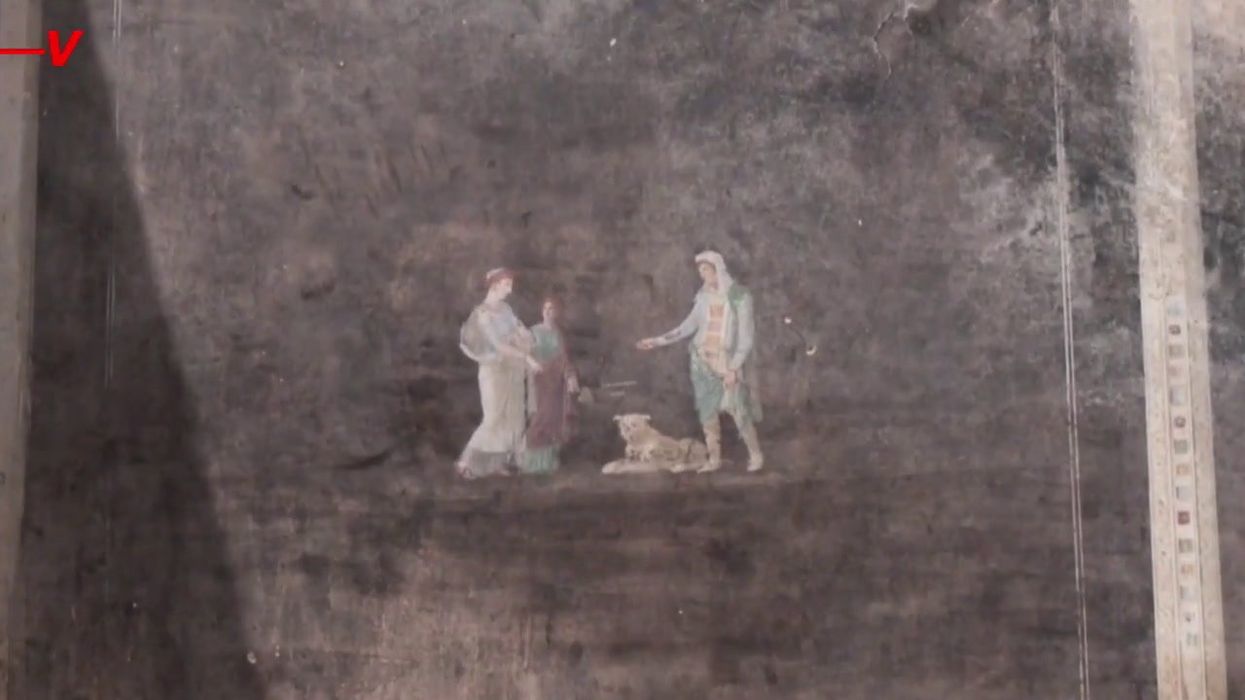Science & Tech
Ellie Abraham
Apr 11, 2024
Pompeii Excavation Unearths Stunning Greek Mythology Artworks
ZMG - Veuer / VideoElephant
Incredible new paintings have been discovered in the ancient city of Pompeii after a new excavation.
Almost 2,000 years ago in AD79, the city was buried under ash and dust by a volcanic eruption from Mount Vesuvius and experts continue to make new and amazing discoveries to this day.
An ancient Roman building site was recently discovered by archaeologists, revealing previously unknown information about construction methods at the time.
Now, some of the finest paintings ever recovered from the ruins of the city have been revealed.
The two frescos depict mythical Greek figures, such as Helen of Troy and the Trojan prince Paris, and were found on the walls of a large banqueting hall that has been called the “black room” because of its dark colour.
The floor of the black room is made up of an almost complete mosaic of over one million individual white tiles.

According to park director, Dr Gabriel Zuchtriegel, who spoke to the BBC, the walls were probably coloured so dark to hide the smoke stains from lamps used to light the room in the evenings.
Zuchtriegel explained: “In the shimmering light, the paintings would have almost come to life.”
One of the images depicts the god Apollo as he tries to seduce the priestess Cassandra. According to legend, she rejected him, leading to her prophecies being ignored.

The paintings were discovered during the excavation of an area known as Region 9 – believed to have been a residential and commercial block – where several metres of ash are being removed.
In order to protect the frescos and stop them from coming away from the wall, restorers must inject a plaster glue behind them.
Dr Roberta Prisco told the BBC that “the responsibility is enormous”, but added: “We have a passion and a deep love for what we're doing, because what we're uncovering and protecting is for the joy also of the generations that come after us.”
Sign up for our free indy100 weekly newsletter
How to join the indy100's free WhatsApp channel
Have your say in our news democracy. Click the upvote icon at the top of the page to help raise this article through the indy100 ranking
Top 100
The Conversation (0)














